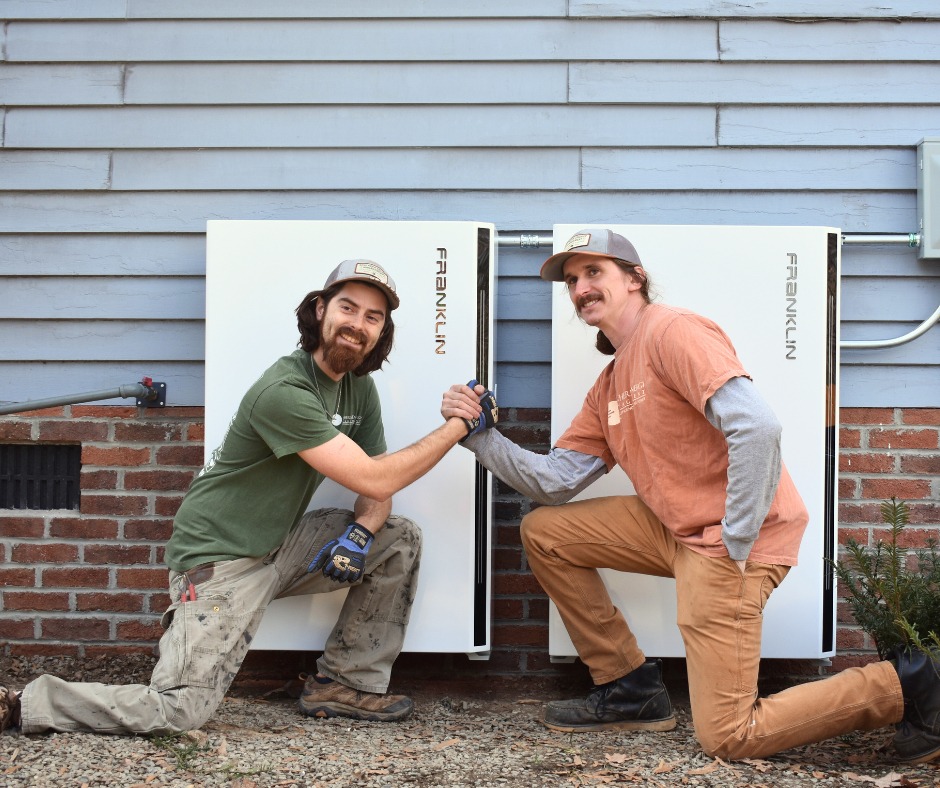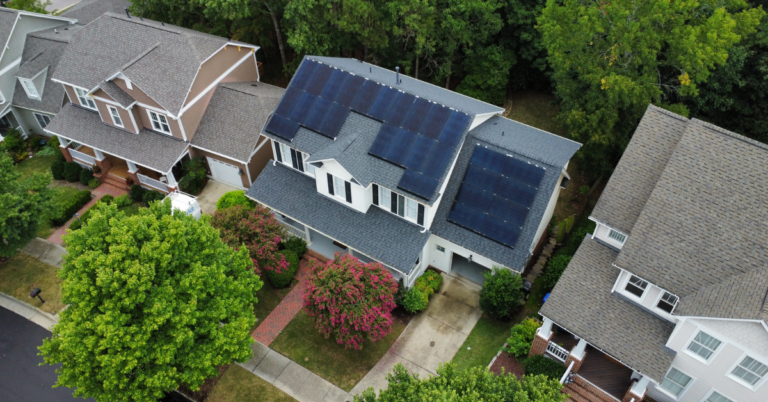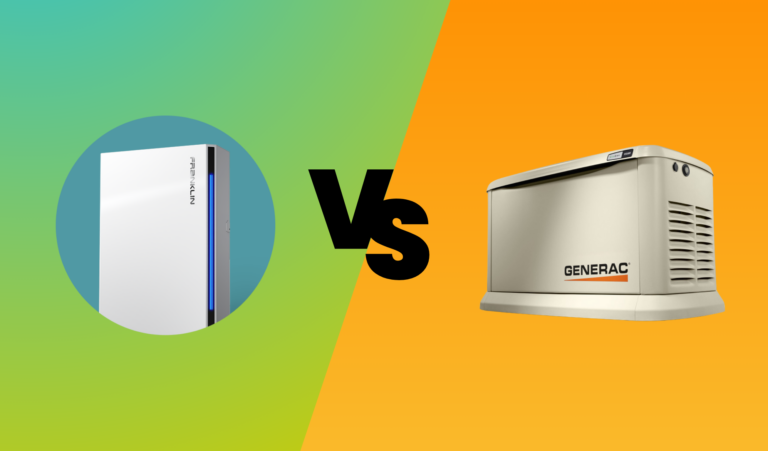Who is FranklinWH?
Founded in 2019 and based in the San Francisco Bay Area, FranklinWH has quickly become a notable player in the energy sector. The team, with decades of experience, is driven by a mission to deliver safer, smarter, and more reliable home energy solutions.
“We will continue accelerating along the path of safer, more reliable, and smarter home energy solutions, adhering to the concept of “Innovation, Ascendancy, and Sincerity” to create value for everyone. Together, we can build the new ecology of energy technology. At FranklinWH, we are committed to bringing homeowners peace of mind through energy independence.”
We’re excited to be a FranklinWH Certified Installer, and yes, their name is in part a nod to Benjamin Franklin. Did you know that Benjamin Franklin was the first person to coin the term “battery”?

Key Features of the FranklinWH aPower 2
The aPower 2 is a second-generation home energy battery within the FranklinWH energy ecosystem.
What does it do? Much like other battery storage systems, the aPower 2 captures and stores energy from multiple sources — solar panels, the grid, generators, and even electric vehicles. This stored energy is then used to power your home during peak energy times or in the event of grid outages, making sure that you remain powered and protected.
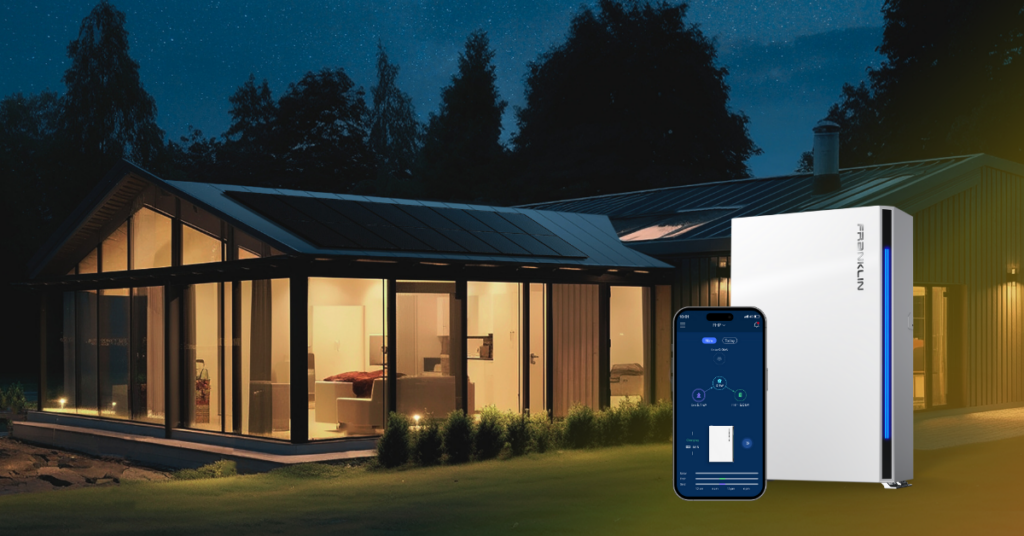
As your energy needs evolve, the aPower 2 supports the addition of up to 15 units, making it an adaptable solution for varying home sizes and energy demands. With the FranklinWH app, the system offers smart energy management, allowing you to monitor and manage your home’s energy usage and performance with real-time insights.
| Specs | FranklinWH aPower 2 |
| Battery Stacking | Up to 15 units |
| Energy Capacity | 15 kWh |
| Continuous Power | 10 kW |
| Weight | 357 lbs |
| Warranty | 15 years |
| Unique Features | ✅ Generator Integration (240 V, 60 Hz) ✅ EV Integration (240 V) ✅ Smart Circuit Energy Controls |
| Duke Energy Battery Incentive | $552 / year |
What is the FranklinWH aGate?
The FranklinWH aGate is the control hub behind it all. Similar to an inverter, it is FranklinWH’s product responsible for interconnecting solar, grid, batteries, and even a standby generator to power your home with stored electricity or from the grid.
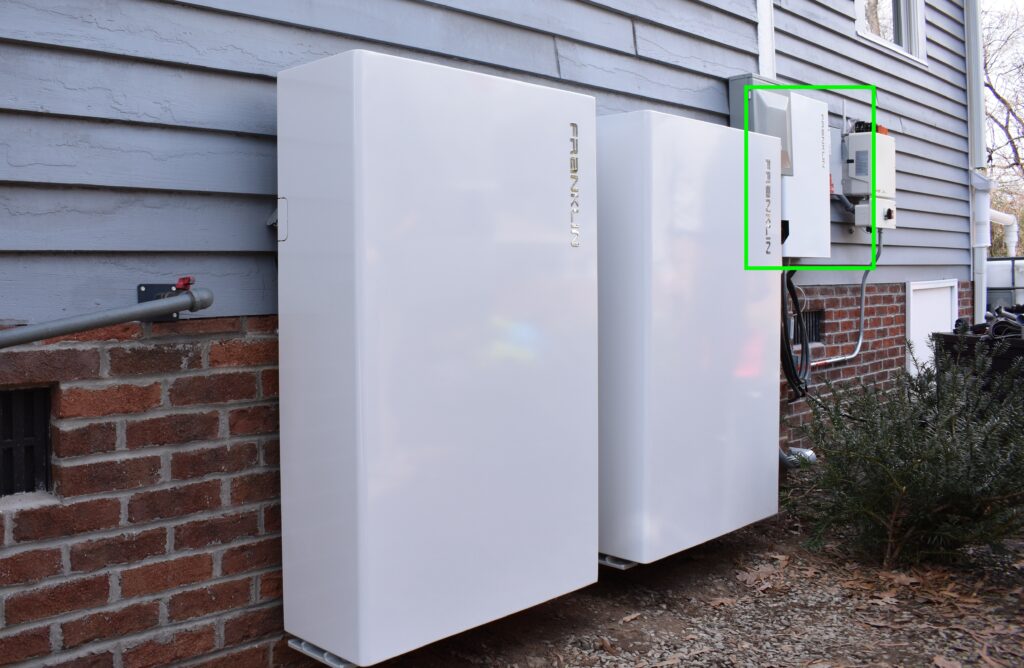
What is the difference between the FranklinWH aGate and aPower 2?
The FranklinWH aGate and aPower 2 are both components of FranklinWH’s home energy management system, each serving different functions:
- The aGate acts as the intelligent energy management hub, overseeing the distribution and control of energy from various sources—such as your solar panels, the grid, and backup generators—to your home’s electrical system.
- The aPower 2 functions as the energy storage unit, storing electricity for use during peak times or power outages.
What can you power with a FranklinWH aPower 2?
The FranklinWH aPower 2 delivers a steady output of 5 kW and can peak at 10 kW, ensuring it can power all your essential appliances. Additionally, FranklinWH’s smart circuit feature offers enhanced customization and control, allowing you to back up high-demand 240V appliances like your HVAC and water heater more effectively.
Here’s what you can typically power with the aPower 2 battery:
- Essential Home Appliances – such as refrigerators, freezers, washing machines, and dishwashers
- Heating and Cooling Systems – It can support HVAC systems, including air conditioners and heaters
- Home Electronics – like TVs (you’ll never have to stop watching White Lotus), computers, home entertainment systems, and charging stations for mobile devices
- Lighting
- Medical Devices
- Security Systems
- Water heaters, well pumps, septic, and more!
Will FranklinWH aPower 2 run larger loads like an air conditioner?
Yes, the FranklinWH aPower battery can run larger loads like an air conditioner. Each aPower unit has a continuous power output of 5 kW and a peak output of 10 kW for short bursts. So while the FranklinWH aPower 2 can run your AC unit, you’ll likely need to use it more intentionally during power outages than compared to normal usage.
That’s where the Smart Circuit comes in…

What is a Smart Circuit?
The Smart Circuit feature of the aPower 2 helps you make the most of your power during outages, especially when it comes to high-energy devices like air conditioners.
How does it work?? High energy demand appliances will automatically turn off when the grid goes down to help preserve your battery life. However, you can manually toggle these circuits on and set a minimum battery charge threshold to shut the circuits off. This is an awesome feature, unique to the FranklinWH aPower 2!
With this system, you can remotely manage these appliances, stretching the life of your battery when every minute counts. We typically recommend powering your air conditioner along with one other large appliance—just two circuits in total. You can easily control these circuits through the Franklin monitoring app, putting you in charge, even when the power’s out.
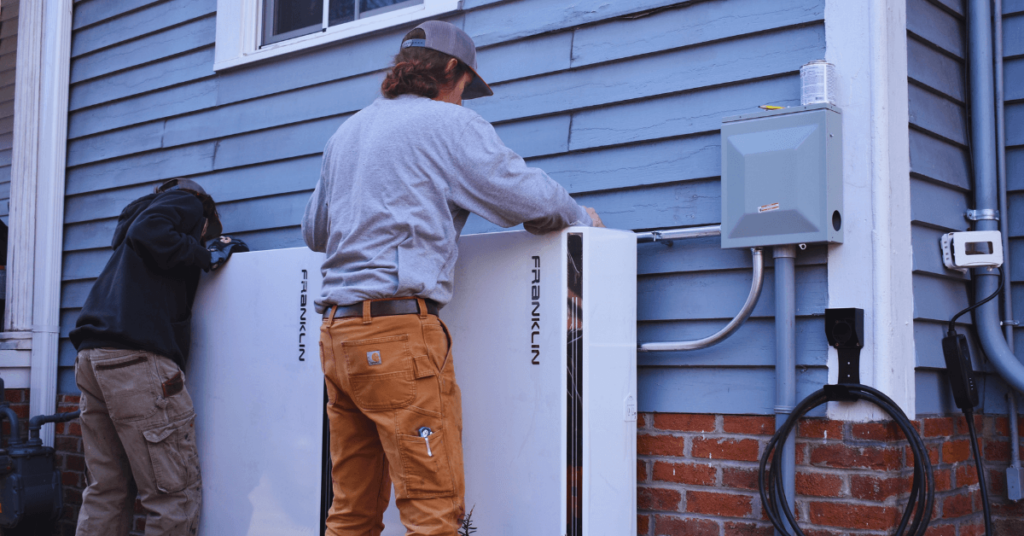
How long does the Franklin aPower 2 last during a grid outage?
For most homes in North Carolina, you could expect a single battery to keep the lights on for about 12 to 24 hours, provided you’re not running your HVAC system. If you need more backup power, you’ll need to consider adding more batteries to your setup. Adding units can extend your backup duration significantly, but regardless, you’ll still need to monitor your energy usage during an outage.
Weather plays a big role, too. In the cooler spring and fall months, your backup power could last a few days, no problem. But when the summer heat kicks in, especially with your AC running off the battery, you might only have backup for a few hours.
It’s all about understanding your energy needs and planning accordingly. Our expert solar designers will help you prepare for all kinds of scenarios, year-round, so you’re always ready for whatever comes your way.

Electric Vehicle & Generator Integration
FranklinWH isn’t just about storing energy; it’s about creating an ecosystem. With the optional generator module, your system can integrate vehicle-to-home charging and even accommodate a generator, offering flexibility during outages. Just note that this port can either be used for a whole home generator or EV integration, but not both simultaneously. Here is an article from Franklin that dives into this much deeper.
The FranklinWH ecosystem is brand agnostic which means you’re free to use any products that are compatible with V2L (Vehicle to Load).
How much does the aPower 2 cost?
When installing the aPower 2 with a new solar system in North Carolina, you’re looking at around $17,000 to $19,000 per battery depending on your system configuration. That’s before incentives! Don’t forget about the 30% Federal Tax Credit and Duke Energy’s PowerPair Incentive (up to $9,000 off a solar + battery system).
How much does it cost to add a FranklinWH battery to an existing solar system?
If you’re thinking about getting a battery with a new solar system, we’d recommend going ahead and getting both installed at the same time. Adding an aPower 2 to an existing solar setup typically comes with a $1,500 premium on top of the costs listed above. This premium covers things like permitting fees and all the other administrative and design services needed to get everything integrated smoothly with your existing solar install.
Is a FranklinWH aPower 2 more expensive than a Tesla Powerwall 3?
Right now, a Tesla Powerwall 3 costs around $15,000 to $17,000 depending on whether you are installing the battery together with a new solar system or if you are adding it on to an existing system. The FranklinWH aPower 2 comes at a premium with enhanced features such as larger capacity, generator and EV integration, smart circuits, extended warranty, and more.
How does the FranklinWH aPower 2 compare to Tesla’s Powerwall?
We’ll have some resources coming out soon, but in the meantime, check out the comparison chart on this page.
Looking Forward
Ready to secure your energy independence? Reach out today for a free assessment and see how the FranklinWH aPower 2 can meet your energy goals.

